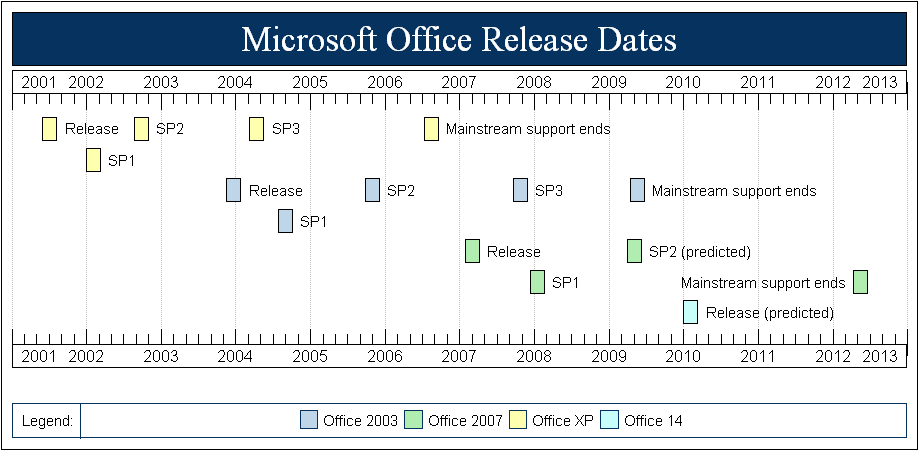April 15th is Tax Day in the United States, the day by which we must file our income tax returns for 2008 and pay any balance due.
The day before, April 14th, is also a day of reckoning, with another outstretched hand asking for our money. This is the day which marks the end of “mainstream support” for Microsoft Windows XP and Office 2003. After this date, licensed owners of these products will no longer receive free support and updates.

Depending on how consumers respond, one of three things will result from this end of life.
- Users migrate to Vista/Office 2007
- Users stay on unsupported Microsoft products for the near term and wait for Windows 7/Office 14 to come out in 2010.
- Users take the opportunity to evaluate the available alternatives, including open source.
Since Windows XP is the most widely-deployed version of Windows, and Windows is the most-widely deployed operating system in the world, many licenses will be up for grabs as IT shops decide what to do next. Especially in these tough economic times, upgrading to Vista just to see Vista become obsolete in less than a year doesn’t make sense. But neither does remaining on an unsupported version of Windows.
This is a significant opportunity for alternatives, such as Linux and other open source applications, to increase their representation on the desktop. We should spend the next nine months making it especially easy for Microsoft’s seemingly unwanted and expendable Windows XP and Office 2003 customers to migrate to better alternatives. The Windows/Office release calendar and economic conditions have combined to make this a huge upgrade cycle. In 2010 almost everyone will be looking to upgrade. An opportunity like this does not come every year. Let’s make the most of it!